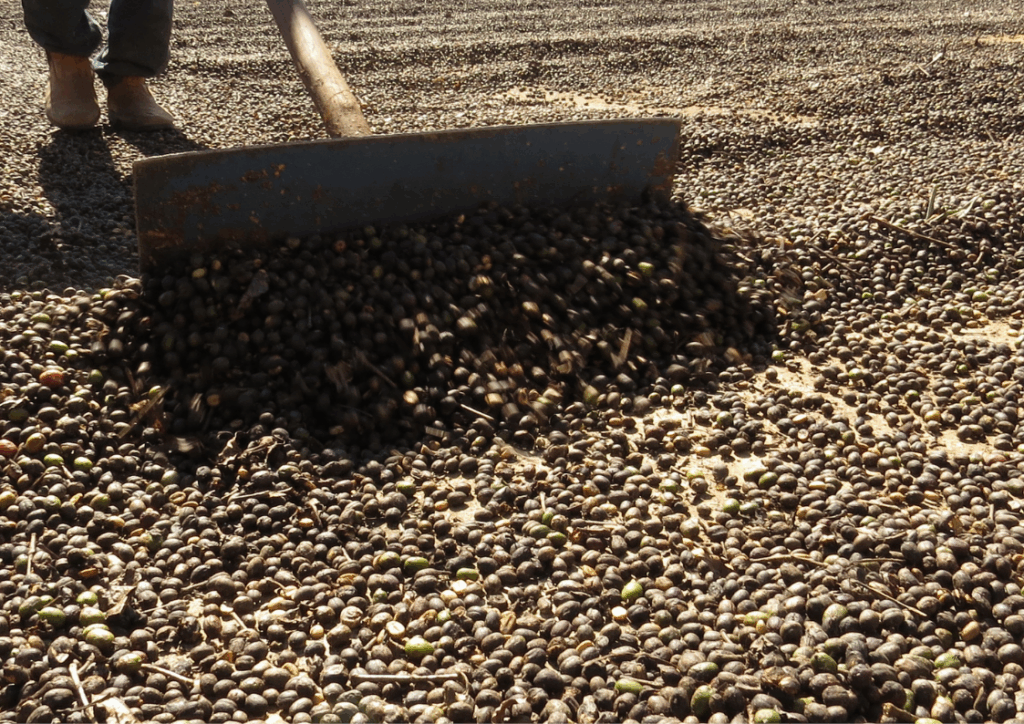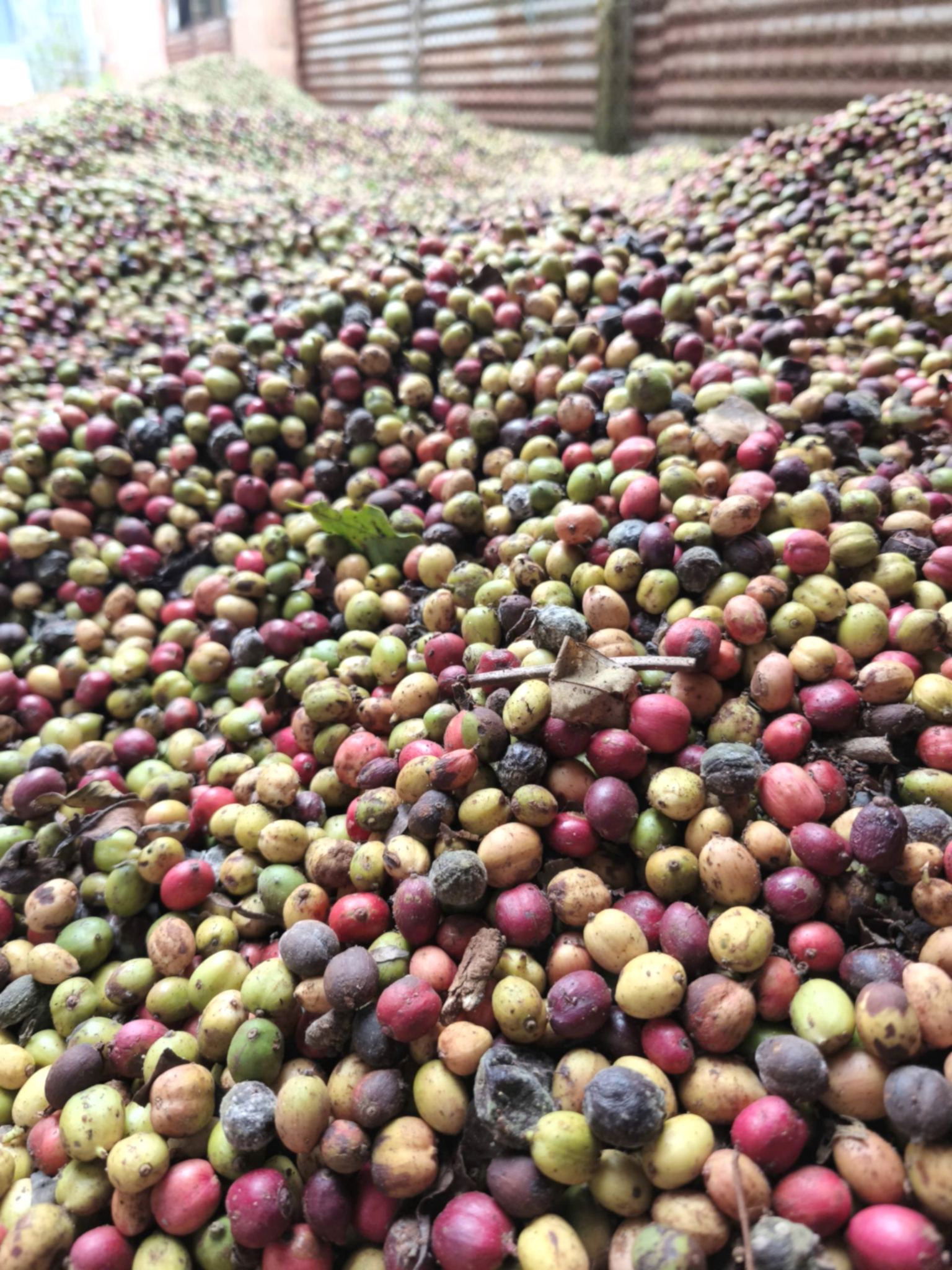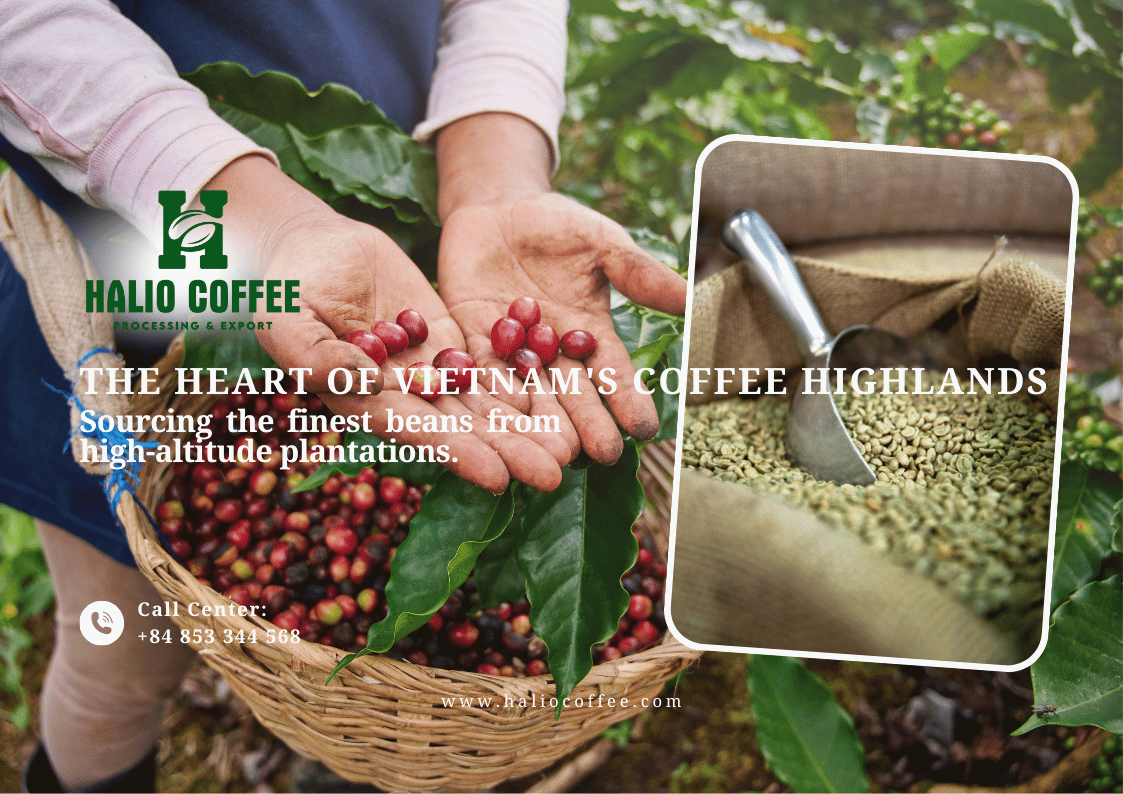Specialty Robusta Natural Process: A Deep Dive into Vietnam’s Coffee Revolution
In the dynamic global coffee market, a significant transformation is underway. For decades, the narrative of specialty coffee has been overwhelmingly dominated by Arabica. Yet, mounting pressures from climate change, coupled with an evolving consumer palate, are compelling the industry to look towards a more resilient and surprisingly complex alternative: Coffea canephora, or Robusta. At the forefront of this evolution is Vietnam, the world’s Robusta powerhouse, which is now pioneering the production of Specialty Robusta Natural Process coffee, challenging long-held perceptions and unlocking a new frontier of flavor for the global market.
This in-depth analysis is for the discerning coffee professional—the producers, distributors, and roasters—who understand that the future of coffee lies in innovation, quality, and diversification. We will explore the technical nuances and market potential of this burgeoning category, with a particular focus on why Natural Process Robusta for Roasters represents not just a new product, but a strategic imperative for businesses looking to thrive in the next decade of coffee.
The Global Coffee Paradigm: Why the World is Ripe for Robusta

The specialty coffee industry has built its foundation on the delicate and acidic flavor profiles of Arabica. However, the sustainability of this mono-focus is increasingly under threat. Arabica plants are notoriously sensitive, requiring specific altitudes, temperatures, and rainfall patterns—conditions that are becoming alarmingly erratic due to global climate shifts. Projections indicate that the land suitable for Arabica cultivation could be halved by 2050. This environmental exigency, combined with price volatility and the persistent threat of diseases like coffee leaf rust, has created a critical need for high-quality, resilient alternatives.
Enter Robusta: Beyond a Commodity Filler
Historically relegated to the commodity market as a component for instant coffee and a low-cost filler in blends, Robusta’s reputation has been tarnished by an emphasis on quantity over quality. Its characteristic bold, bitter, and often rubbery taste profile was a direct result of industrial-scale farming and processing methods that prioritized yield above all else.
However, the tide is turning. Visionary producers, researchers, and quality experts are demonstrating that Robusta, when cultivated and processed with the same meticulous care as specialty Arabica, can yield a cup that is not only distinct but also remarkably complex and desirable. The establishment of the Fine Robusta (R Grader) certification program by the Coffee Quality Institute (CQI) has been instrumental in this shift, creating a standardized language and a scoring system to identify and reward high-quality Robusta, moving it firmly into the specialty domain.
See more:
- Fruity Robusta Coffee Flavor
- Unwashed Robusta Coffee Beans
- Halio Coffee – Your Trusted Fresh Coffee Distributor of Robusta & Arabica Beans
Vietnam: From Robusta Giant to Quality Innovator
No discussion of Robusta is complete without focusing on Vietnam. As the undisputed global leader in Robusta production, the country’s coffee industry has historically been the engine of its agricultural economy, centered in the Central Highlands provinces like Dak Lak and Lam Dong. The traditional model focused on sun-drying vast quantities of stripped-picked cherries on tarps, leading to the inconsistent and often harsh flavor profiles the world came to associate with Vietnamese coffee.
Today, a new generation of Vietnamese coffee farmers and producers is rewriting this narrative. They are moving away from the old paradigm and embracing a quality-centric approach. This revolution is not about replacing Arabica but about elevating Robusta to its rightful place as a specialty coffee in its own right. The key to this transformation lies in the meticulous application of advanced processing techniques, most notably, the natural process.
The Art and Science of Specialty Robusta Natural Process
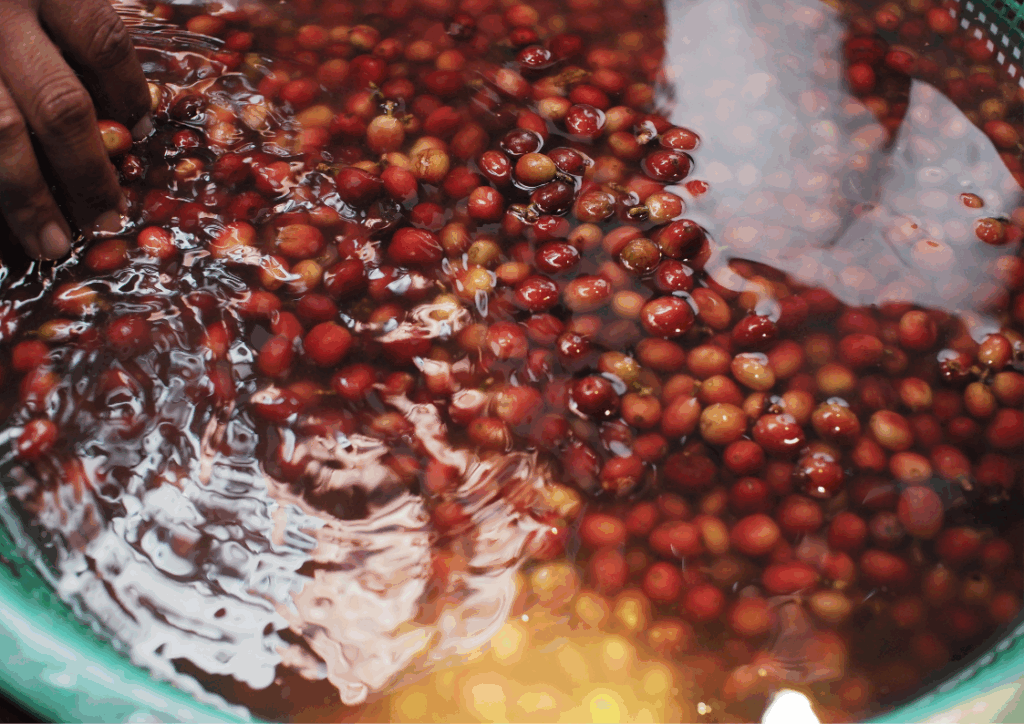
The natural process, or dry process, is the oldest method of processing coffee. It involves drying the entire coffee cherry intact, allowing the bean to have prolonged contact with the fruit’s pulp and mucilage. While simple in concept, executing it to a specialty standard—especially in a humid climate like Vietnam’s—is an exacting science that demands precision at every stage. It is this precision that unlocks the hidden potential within the Robusta bean, transforming its flavor profile from one-dimensional to multi-layered.
Foundational Excellence: The Imperative of Selective Harvesting
The journey to creating a Specialty Robusta Natural Process coffee begins on the tree. Unlike the traditional practice of strip-picking, where all cherries—ripe, under-ripe, and over-ripe—are harvested simultaneously, specialty processing demands selective harvesting.
- Hand-Picking Ripe Cherries: Teams of pickers meticulously pass through the coffee fields multiple times, selecting only cherries at their peak ripeness. This ensures the highest possible sugar content (often measured in Brix), which is the essential fuel for the fermentation that will develop the coffee’s complex flavors.
- Initial Sorting: Immediately after picking, a preliminary sorting phase removes any leaves, twigs, or visibly defective cherries. This first pass is crucial for maintaining the cleanliness of the lot.
The Purity Gateway: Multi-Tiered Sorting Protocols
Once harvested, the cherries undergo a rigorous sorting process to ensure only the best of the best proceed to the drying stage.
- Floating: The cherries are submerged in tanks of clean water. High-density, perfectly ripe cherries sink to the bottom, while under-ripe, over-ripe, and insect-damaged “floaters” are skimmed off the top. This simple yet effective step dramatically improves the final cup’s consistency and cleanliness.
- Manual Sorting: Following the flotation, the cherries are spread out on sorting tables or mats where trained workers conduct a final visual inspection, removing any remaining defective cherries that may have passed the initial stages.
Controlled Fermentation and Drying: The Heart of Flavor Creation
This is the most critical and skill-intensive phase of the natural process, where the coffee’s final flavor profile is truly forged. In the context of Specialty Robusta Natural Process, this stage is far from the simple “sun-drying” of the past. It is a highly controlled and monitored procedure.
- Raised African Beds: To ensure optimal airflow and prevent the development of mold or off-flavors, the sorted cherries are spread in thin layers on raised drying beds. These beds, typically made of mesh, allow air to circulate freely around each individual cherry, promoting even drying.
- Managing Humidity and Temperature: Vietnam’s high humidity presents a significant challenge. Producers mitigate this risk by using parabolic dryers (solar greenhouses) that protect the drying coffee from rain and trap solar heat while allowing for ventilation. The cherries are turned frequently—every few hours in the initial stages—to ensure uniformity and prevent microclimates that could lead to uncontrolled fermentation.
- Advanced Fermentation Techniques: The pinnacle of innovation in this field is the adoption of controlled fermentation protocols before drying.
- Anaerobic Natural Process: This method involves placing the perfectly ripe cherries in hermetically sealed tanks or bags, often flushed with CO2 to remove oxygen. In this oxygen-free environment, different microbial pathways are encouraged, breaking down the sugars in the mucilage at a slower, more controlled rate. This can last from 24 to over 96 hours and results in pronounced fruit-forward notes, a winey acidity, and a significantly enhanced sweetness and body, while taming Robusta’s inherent bitterness.
- Moisture Content Monitoring: Throughout the drying process, which can take anywhere from 15 to 30 days, producers constantly monitor the moisture content of the cherries using digital meters. The goal is to slowly and evenly bring the moisture level down to a stable 10-12%. Drying too quickly can trap moisture and acids inside the bean, while drying too slowly risks spoilage.
The Roaster’s Advantage: Why Natural Process Robusta for Roasters is a Strategic Asset
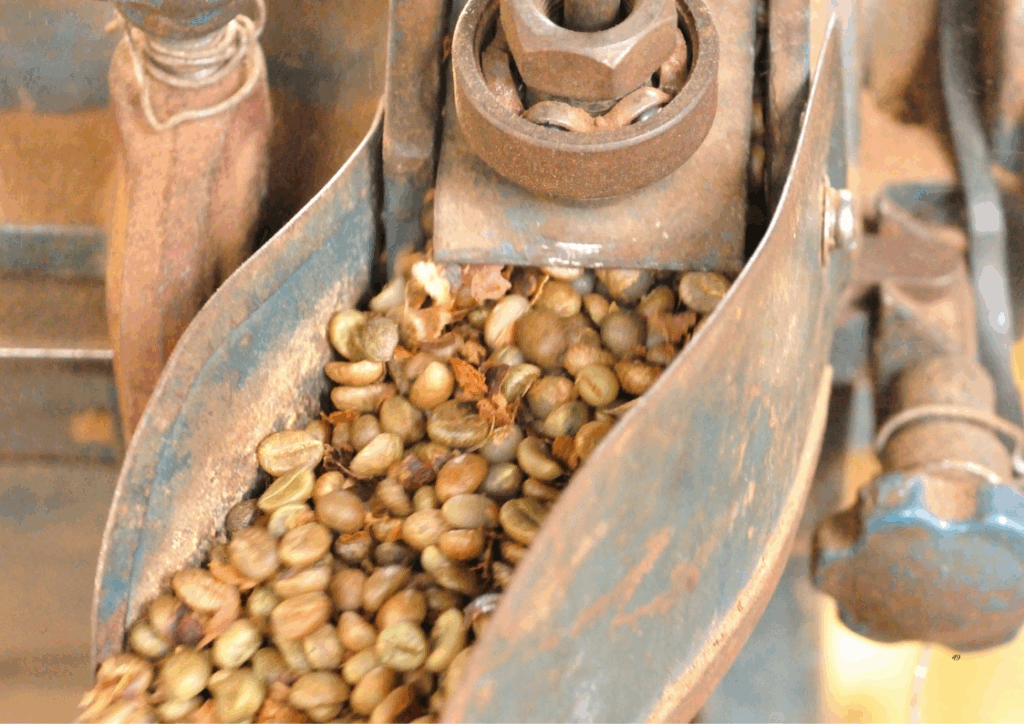
For coffee roasters, integrating a high-quality Natural Process Robusta into your portfolio is no longer just an experiment; it’s a smart business decision. It offers a unique combination of flavor innovation, blend enhancement, and supply chain security.
Unlocking a New Universe of Flavor
Forget the Robusta of old. A well-executed Specialty Robusta Natural Process from Vietnam offers a flavor profile that is both surprising and captivating. Roasters can expect to find:
- Dominant Notes: Rich dark chocolate, cacao nibs, and molasses.
- Complex Fruitiness: Layers of dried cherry, prune, jackfruit, and sometimes even tropical fruit notes like banana or mango, derived directly from the extended fruit contact during processing.
- Enhanced Body and Mouthfeel: A characteristically full, syrupy, and viscous body that adds incredible texture to any coffee experience.
- Balanced Bitterness and Sweetness: The controlled fermentation converts harsh bitterness into a pleasant, structured complexity, balanced by a deep, lingering sweetness.
The Espresso Blend Game-Changer
While exceptional as a single origin, this is where Natural Process Robusta for Roasters truly shines. Incorporating even a small percentage (10-20%) of a specialty natural Robusta into an espresso blend can have a transformative effect:
- Crema King: Robusta is renowned for its ability to produce a thick, stable, and long-lasting crema, a key indicator of a quality espresso shot for many consumers. The natural process enhances this, contributing to a rich, hazelnut-colored foam.
- Body and Texture: It adds a weight and mouthfeel that is often difficult to achieve with 100% Arabica blends, creating a more satisfying and complete sensory experience.
- Flavor Foundation: The deep chocolate and nutty base notes of a specialty Robusta provide a solid foundation upon which the brighter, more acidic notes of Arabica can stand out, creating a more balanced and complex blend.
- Cost-Effective Quality: It allows roasters to improve the body and crema of their blends while managing costs, without resorting to low-quality commodity beans that would degrade the overall flavor profile.
A Commitment to a Resilient and Sustainable Future
By sourcing and promoting Specialty Robusta Natural Process, roasters and distributors are investing in a more sustainable coffee future. Robusta’s natural hardiness makes it more resistant to the effects of climate change, pests, and diseases, ensuring a more stable and reliable supply chain. Supporting the Vietnamese producers who are investing heavily in these quality-focused, labor-intensive processes also contributes to a more equitable and economically viable future for coffee-growing communities.
Sourcing Excellence: Partnering for Quality in Vietnam
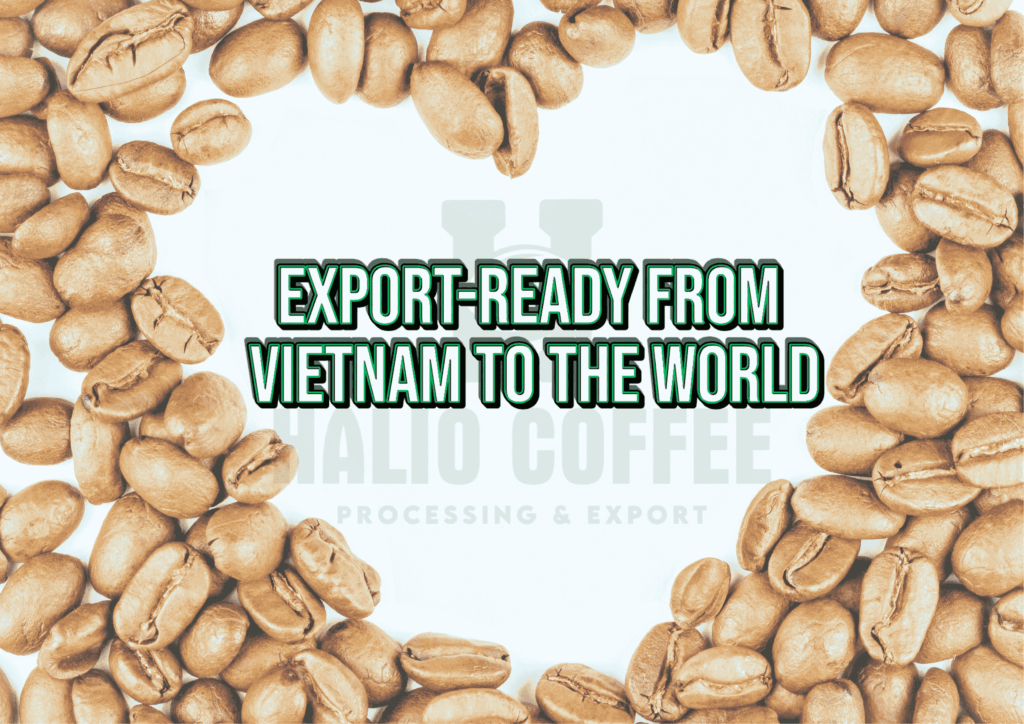
Vietnam to the world
For international buyers, identifying the right partners in Vietnam is key to accessing the best lots of Specialty Robusta Natural Process coffee. The focus should be on transparency, traceability, and a shared commitment to quality.
Key Indicators of a Quality-Focused Supplier
When evaluating potential partners, roasters and importers should look for specific indicators of quality and professionalism:
- Traceability to the Source: A reliable supplier should be able to provide detailed information about the coffee’s origin, including the specific region, cooperative, or even the individual farm.
- Detailed Processing Protocols: Do not hesitate to ask for the specifics of their processing. Inquire about their cherry selection criteria, the duration and method of fermentation (e.g., anaerobic, semi-carbonic), the type of drying beds used, the average drying time, and their methods for monitoring moisture.
- In-House Quality Control: Serious producers will have their own cupping labs and trained staff (ideally R Graders) who cup their lots regularly to ensure consistency and quality. They should be able to provide samples and detailed cupping notes.
The Power of Direct Trade Relationships
Building direct or semi-direct trade relationships with Vietnamese producers or progressive exporters is invaluable. This direct link fosters better communication, allowing roasters to provide feedback and request specific processing protocols to meet their desired flavor profiles. Furthermore, it ensures that a higher percentage of the final price goes back to the producers who are undertaking the hard work and financial risk of innovating with these advanced processing methods. By championing Specialty Robusta Natural Process, you are not just buying coffee; you are investing in the very future and resilience of the specialty coffee industry.
- Defining and Vetting Green Coffee Bean Suppliers
- A Consultant’s Guide to Supplier Capacity and Volume Assessment in Vietnam
- Coffee Prices Today 2/10: Robusta Surges Over $200/Ton, Market Buzzes with Activity
- The 2026 Procurement Strategic Guide: How to Source Green Coffee from Vietnam
- Sourcing and Verifying Organic Green Coffee Beans Certification in Vietnam
